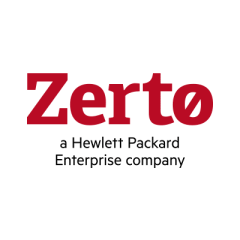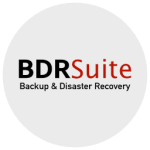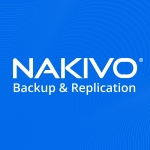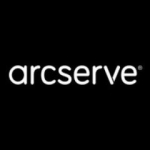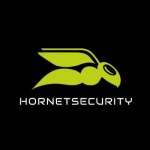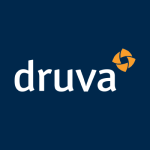What is our primary use case?
We are using it to protect all our on-premise virtual workloads, which includes mission-critical applications, line of business applications, and several unstructured data type repositories for disaster recovery.
It is our sole disaster recovery solution for what it does. It is protecting all the workloads at SmartBank.
Both of our data centers are on-premise and in colocations. Our plan over the next year or two is that we will very likely be shifting to DR in the cloud.
How has it helped my organization?
We had a ransomware event on one of our file servers. We detected that event very quickly using other methodologies. However, because we had Zerto in place on that server, within about 30 minutes from seeing the problem, we were able to go back and recover that machine before that ransomware event had happened. This is a great example of the solution's ability to restore so quickly that it really helped us.
Because of its ease of use, it has increased the number of people in IT who can failback or move workloads. This used to be something that was done only by our infrastructure team, because it was manual processes and complex. We now have the virtual protection setup so effectively, and Zerto does it so effectively, that we have now been able to get another three or four people from other groups of our IT company trained on how to do recovery operations. This helps us tremendously when we are doing recovery because there are just a lot more people who might be available to do it. On average, we have saved two hours per workload, and we have hundreds of workloads. We have taken about a two-hour process down to about 10 minutes in terms of recovery. Zerto is really good at what it does. It has been tremendous.
We can have a single person restoring scores of machines as well as doing DR. Backups are still managed separately. In our case, we did not reduce staff. Our staff was already kind of a limiting factor. We put Zerto in to enable our staff to do more, not to reduce our staff. Therefore, we have tremendously reduced the amount of workloads being handled by specialists.
What is most valuable?
The most valuable features are the ease of use, i.e., the relatively low complexity of the solution, as well as the speed and effectiveness of the solution. This allows us to protect our workloads with extremely small latency, making it very easy for us to monitor and recover. So, we are very happy with it.
In terms of Zerto providing continuous data protection, I would rate it as a nine out of 10. It is incredibly effective at what it does. I really have no complaints.
What needs improvement?
I would like to see more managed service= options. While Zerto isn't doing this a lot, there are a ton of third-parties who are doing managed services with Zerto.
Buyer's Guide
Zerto
March 2025
Learn what your peers think about Zerto. Get advice and tips from experienced pros sharing their opinions. Updated: March 2025.
849,190 professionals have used our research since 2012.
For how long have I used the solution?
For this company, we have only been using it for about six months. However, I have used it at two other companies for a total of about four years.
What do I think about the stability of the solution?
What do I think about the scalability of the solution?
For our current needs, the scalability seems excellent. The scalability of the solution is really more of a function of your bandwidth and the amount of virtual resources you can point at it. I don't think there is any conceivable scalability limit.
Probably 10 people on my team touch Zerto in a meaningful way:
- Four of them are infrastructure and data center engineers. They support the storage, users, communications, the software, and the configuration of most of the back-end system as well as monitor the solution. They do a lot there.
- The other six people are our technical support director, enterprise applications team, and information security officer. Those people also get into Zerto. They generally do failover testing and monitor certain VPGs for parts of our system that they are responsible for, and they do some protection configuration.
The heavy lifting is done on the infrastructure side, but the other teams monitor, maintain, and most importantly, test it. This is a big deal because we previously had the infrastructure team do all the testing for us before Zerto. Now, the business unit managers directly in IT can do their own testing, which is a big change for us.
How are customer service and support?
Their technical support is excellent. They have a great support portal, which is easy to use. They are very responsive and generally able to help us with any configuration or performance issues that we run into.
Which solution did I use previously and why did I switch?
Our previous product was VMware Site Recovery Manager. We switched to get a less complex system that could protect our workloads better and enable faster recovery. Those were kind of the main reasons why we switched.
How was the initial setup?
The initial setup was straightforward.
What about the implementation team?
We deployed Zerto initially with a VAR. They explained the process very well. It was just an initial installation service which included some training. Then, we took over the management of it and have been managing it in-house ever since.
What was our ROI?
We have seen ROI. The biggest way that we have seen it is in avoided downtime. We have had outages before, and we count downtime in terms of dollars spent. We have cut that down so dramatically, which provides us a very quick ROI. We have drastically reduced the amount of time it takes us to recover workloads, from an average of two hours to an average of 10 minutes.
We measure our downtime in thousands of dollars per minute. While it depends on what is down and who it is impacting, we take in an average of $1,000 a minute at a minimum. So, 120 minutes of downtime at $1,000 is $120,000 per workload that is down, and that can add up very quickly.
What's my experience with pricing, setup cost, and licensing?
My only business complaint is the cost of the solution. I feel like the cost could be a tad lower, but we are willing to pay extra to get the Premium service.
Zerto does a per-workload licensing model, per-server. It is simple and straightforward, but it is not super flexible. It is kind of a one size fits all. They charge the same price for those workloads. I feel like they could have some flexible licensing option possibly based on criticality, just so we could protect less important work. I would love to protect every workload in my environment with Zerto, whether I really need it or not, but the cost is such that I really have to justify that protection. So, if we had some more flexibility, e.g., you could protect servers with a two-, three-, or four-hour RPO at a certain price point versus mission-critical every five minutes, then I would be interested in that.
The costs are the license and annual maintenance, which is the only other ongoing fee. I would imagine a lot of customers also have an initial project cost to get it implemented, if they choose to go that direction, like we did.
Which other solutions did I evaluate?
We do not currently use it for long-term retention. We have another solution for long-term backup retention, but we are in the second year of a three-year contract, so we will evaluate Zerto when those contracts are up. We will probably test it out. It is certainly something that we will look at. We will also plan to vet having backup and DR in one platform.
The incumbent was Site Recovery Manager, so we evaluated them as an incumbent. We also evaluated Veeam Disaster Recovery Orchestrator. We use Veeam for data backup, and they have a disaster recovery piece. It would have been an add-on to our Veeam, so we evaluated that while also looking at Zerto.
It would be ideal to integrate your backup and disaster recovery into a single solution, so that is a pro whichever way you go with it. Zerto certainly has an answer for that, but so did Veeam. Zerto's replication is superior to anyone else's out there. It's faster, simpler, and effective. I don't think I could get as low an RTO and RPO with any other solution other than Zerto.
When comparing this solution to Site Recovery Manager, pay special attention to the fact that Zerto is hypervisor-agnostic and hardware-agnostic. It is a true software-based solution, which gives flexible options in terms of the types of equipment that they can recover on and to. Ultimately, it is very flexible. It is the most flexible platform for system replication.
What other advice do I have?
I would definitely advise them to give Zerto a chance and PoC it, if they desire. It is the best solution in the marketplace currently and has maintained that for quite some time.
I would give them a nine (out of 10). I really love the solution. I want more Zerto, but I can't afford more Zerto. I would love to protect everything in our environment, but we do have to make a business decision to do that because there is a requisite cost.
Which deployment model are you using for this solution?
On-premises
Disclosure: PeerSpot contacted the reviewer to collect the review and to validate authenticity. The reviewer was referred by the vendor, but the review is not subject to editing or approval by the vendor.

